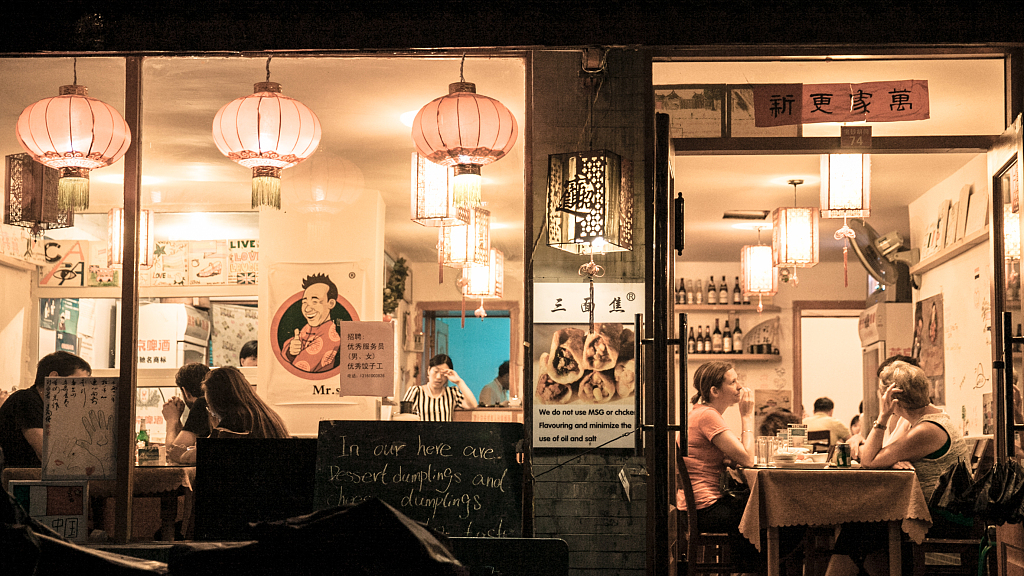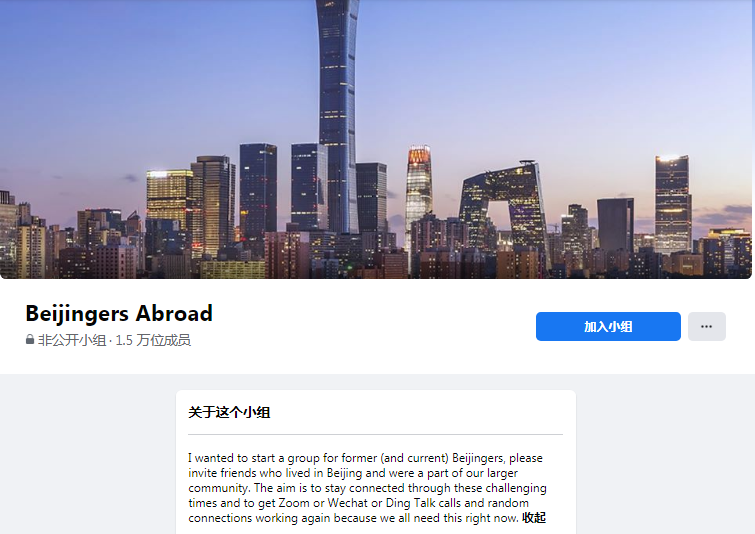
A restaurant in Beijing's Hutong. /VCG
A restaurant in Beijing's Hutong. /VCG
Editor's note: Chris Hawke is a graduate of the Columbia Graduate School of Journalism and a journalist who has reported for over two decades from Beijing, New York, the United Nations, Tokyo, Bangkok, Islamabad and Kabul for AP, UPI and CBS. The article reflects the author's views and not necessarily those of CGTN.
Learning to navigate and accept another culture is difficult, lonely and transformative.
In less than two months, the new Facebook group, Beijingers Abroad, has drawn 15,000 members who fondly exchange old photos and stories about the capital. It gives people a chance to digest and perhaps reframe their experience of living in Beijing — a life-changing experience that people who never went through it can't really understand.
My favorite aspect of the group is that these people sharing glowing memories of their time in Beijing are the same ones who used to complain about it non-stop. This, of course, was a symptom of culture shock. Living in a radically different culture challenges your preconceptions about almost everything: what it means to be polite, how to be clean, or what a contract means.
To take some simple examples, many Chinese prefer to shower at night before going to bed, while Americans more commonly shower first thing in the morning.
Americans will freely set bags down on the ground or sit on a floor, while the Chinese consider this dirty.
Westerns are used to a sit down toilet, while Asians more often squat. This sounds like a trivial point, but squat toilets have been mentioned 87 times in the group, frequently with matching photos.
Another cultural difference is the meaning of rules and contracts. In China, there is a general expectation the rules can be bent to adapt to unusual circumstances or conditions, and people are generally more flexible.
In a contract in China, there is an unwritten expectation that a deal should benefit both sides, and if conditions change, the terms of the contract may change. Westerners take a more rigid and unforgiving view and face a lot of agita until they internalize this cultural difference.
The Chinese approach makes more sense when you consider that ultimately a contract requires the goodwill of both sides to enforce, even in the West. Almost every one of my foreign friends had to learn this through hard experience, such as when they were hired by a school to teach for a summer, but let go after two weeks because of low enrollment.
A related common experience was negotiating prices. In my home country, prices are generally fixed except for some big-ticket items like cars, computers and musical instruments.
In China, more prices can be negotiated. One of the first lessons in my Chinese textbook was about negotiating with the vegetable sellers on the street. In the lesson, the vegetable seller would always give you more than you asked for and round up.
This made me paranoid, and I couldn't help but notice that the woman running my local vegetable stand generally charged me 19 yuan, no matter how many or few vegetables I purchased. I started asking exactly how much everything cost per 50-gram unit, but somehow the total still ended up 19 yuan. Sometimes, you know the game is rigged, even if you are not sure how it's being done.

A screenshot of the Beijingers Abroad group on Facebook.
A screenshot of the Beijingers Abroad group on Facebook.
Nonetheless, keeping things in perspective is important. One of the big lessons I learned is that you can't get bent out of shape over every perceived injustice and slight. Not only would you be continuously distracted and never get anything accomplished, but you would also become a miserable, angry person who others hated being around. The happiest people in China learn to go with the flow.
One of the most striking things about the Beijingers Abroad group was the four decades of photography showing a city that was constantly evolving.
Even though I moved out of Beijing only three or four years ago, many of the places I used to hang out are already closed down or even vanished. I was startled, for example, to see that Workers Stadium is being torn down to be replaced with a more modern facility.
I realized the city where I lived was, in a very real sense, completely different, and in some ways, unrecognizable to the one people had lived in 10 years before, or even right now.
China is so big, and changing so fast, that no one person, Chinese or foreign, could hope to understand it. And even slivers of true understanding can become obsolete very quickly.
That being said, many people in the Beijingers Abroad group noted that parts of the culture they adopted while living in Beijing became part of them. These Westerners now prefer drinking warm water to cold, take their shoes off before entering someone's home, refuse to put their purses or bags on the floor, never leave the house without a pack of tissues, and wear pajamas when making a quick dash to the convenience store.
More profound takeaways are being generous to guests, treating other people to dinners to show friendliness, being respectful to the elderly and focusing more on family.
The takeaway mentioned most often was patience — the knowledge that there are many ways of understanding a situation, and sometimes you need to stay calm and collect more information before jumping to conclusions or rushing to action.
As the world spirals into a trap of xenophobia, me-first nationalism and barely concealed chauvinism and even racism, patience with the goal of understanding is a trait the world could use a lot more of.
(If you want to contribute and have specific expertise, please contact us at opinions@cgtn.com.)